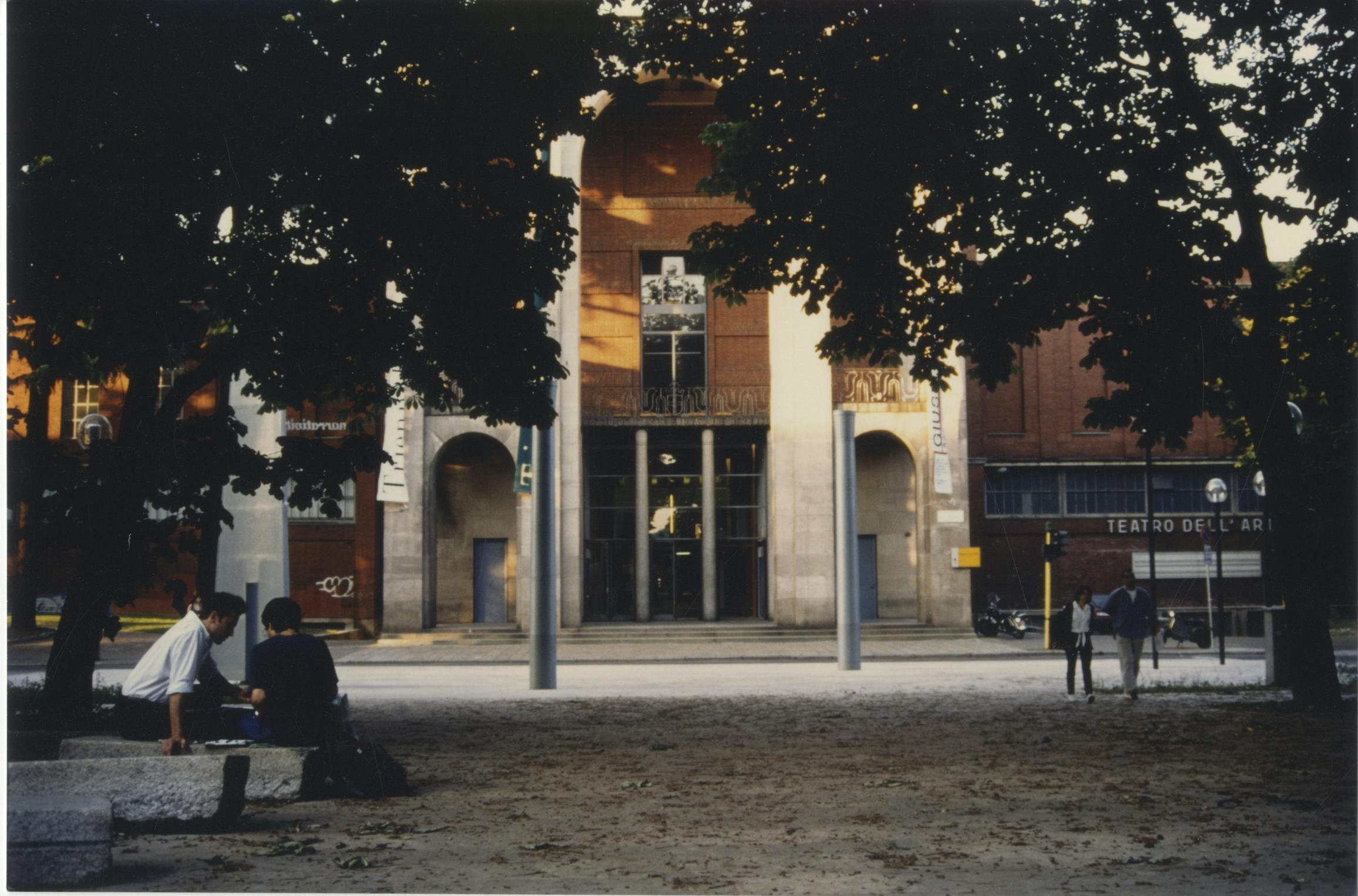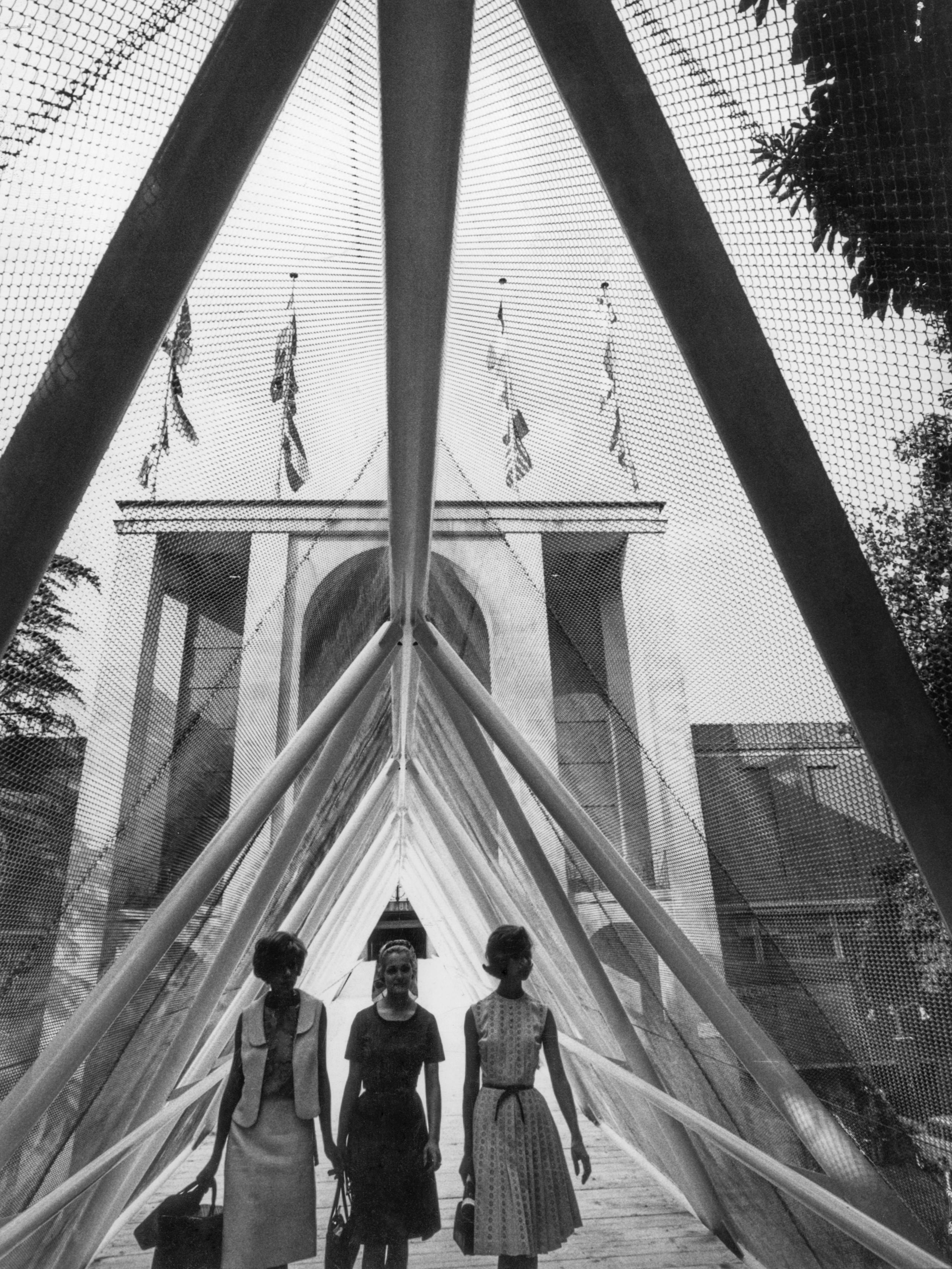
1964, 13th Triennale: Entrance facade of the Palazzo dell’Arte with the iron bridge designed by Aldo Rossi and Luca Meda
Beyond the fringe. Facade installations on the Palazzo dell’Arte for the International Exhibitions
The Palazzo dell’Arte, which is located at number 6, Viale Alemagna, Milan, has been home to Triennale Milano since 1933. For almost 90 years, the building, which was designed by Giovanni Muzio, has been the venue for the countless stories told by the International Exhibitions. Like those we see in this short journey through the photographs from the Triennale Milano Archives, these stories have often emerged from the fringes of the space inside the building to announce themselves on its facade and in its forecourt.
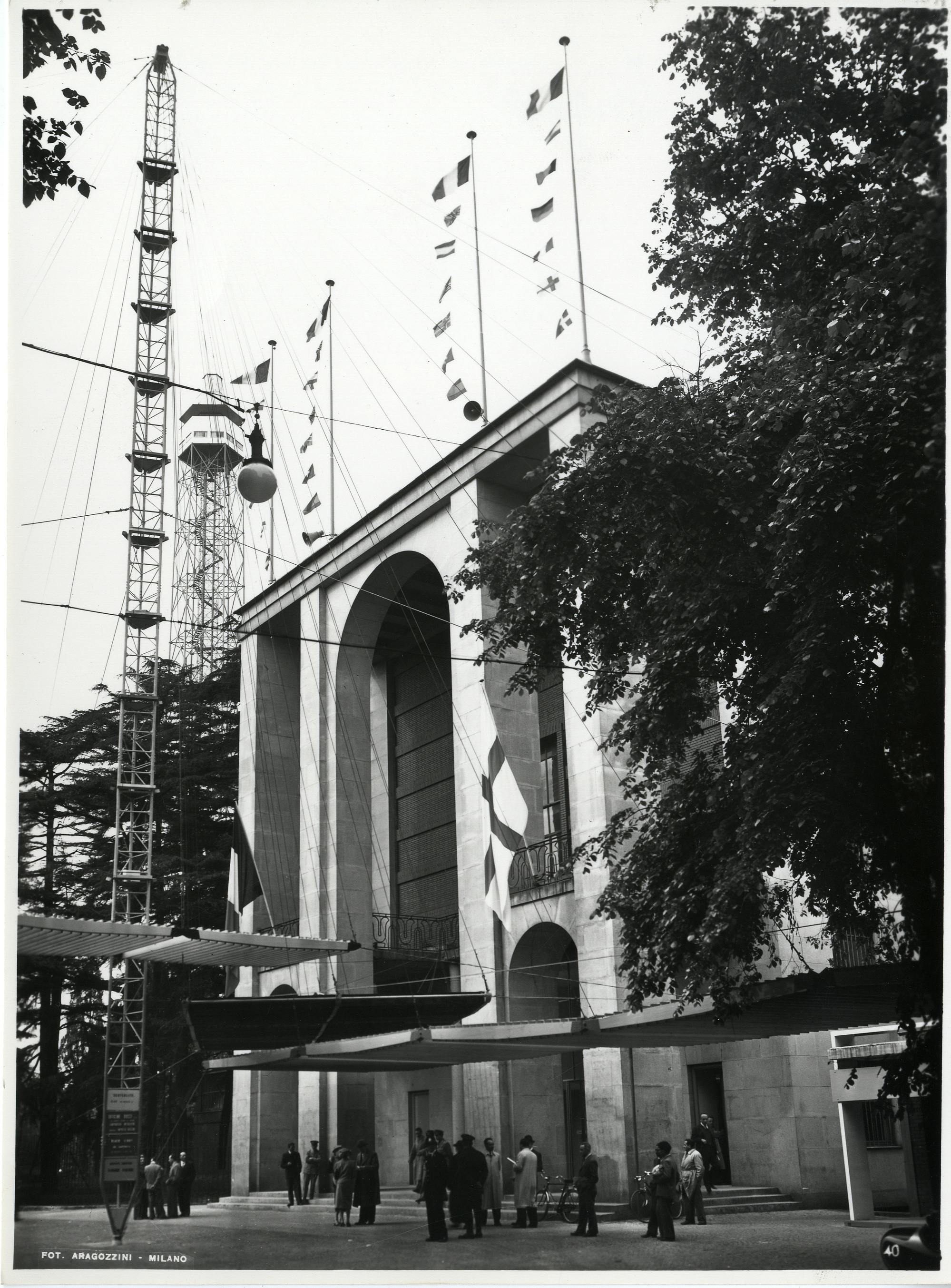
1951, 9th Triennale: Arrangement of the forecourt of the Palazzo dell’Arte. Derrick and sunshade canopies designed by Giorgio Grando and Gianfranco Patrini
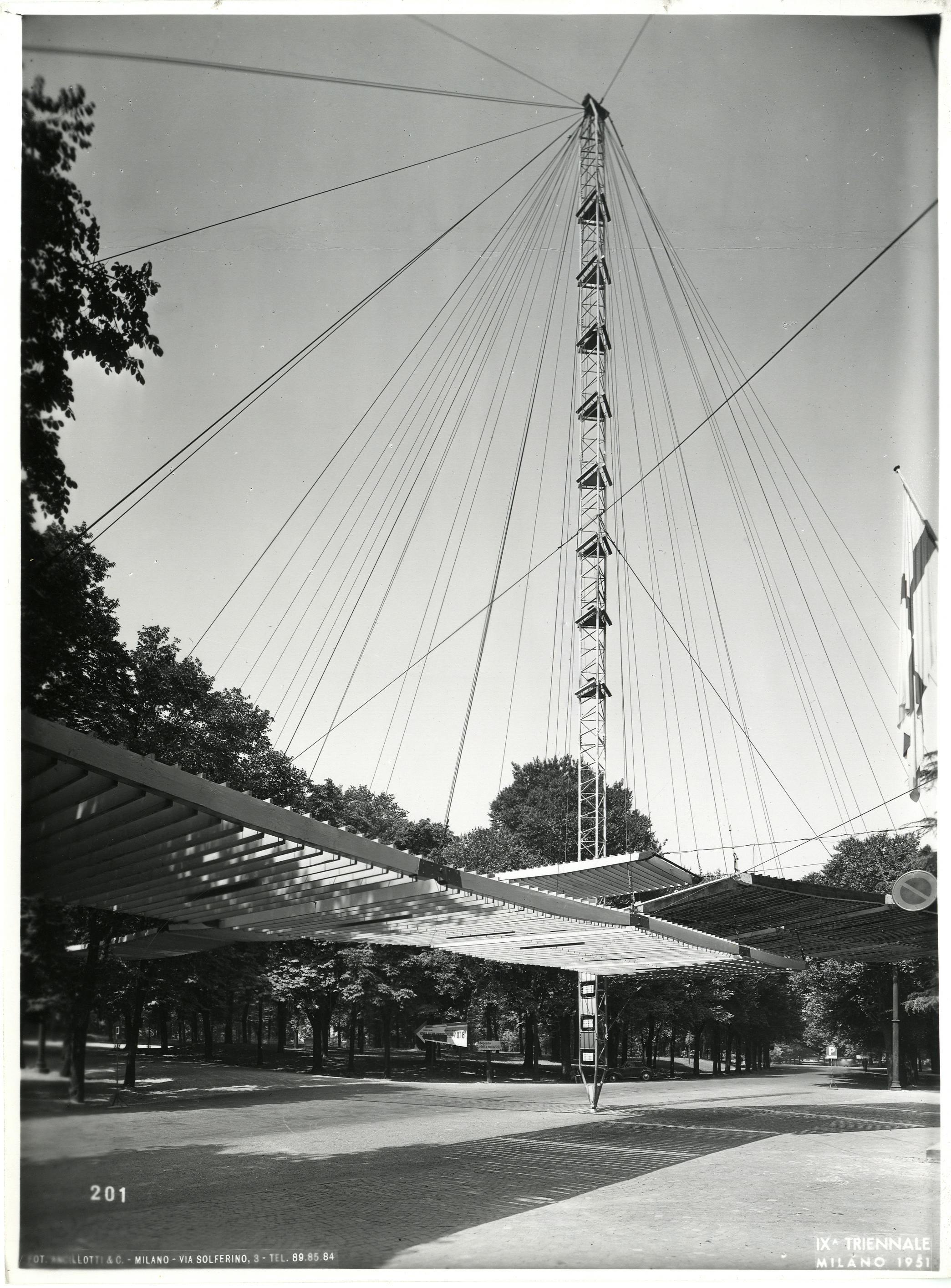
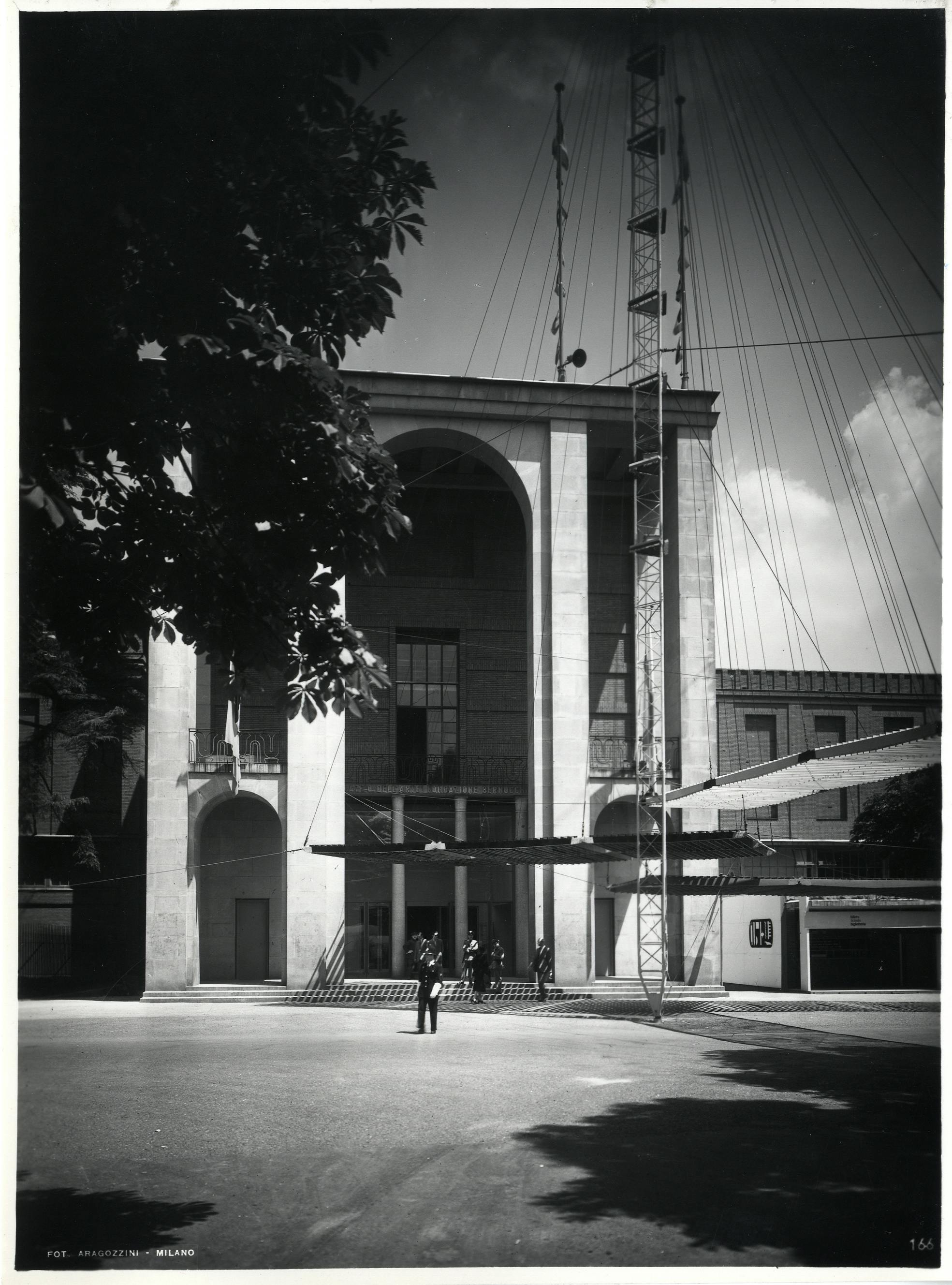
The first project involving the facade and forecourt of the Palazzo dell’Arte was created by Giorgio Grando and Gianfranco Patrini in 1951, for the 9th Triennale. A large derrick was erected in front of the main entrance of the Triennale, with a tubular metal structure supporting three sunshade canopies that put the focus on the main access routes. The 29-metre-tall derrick was mostly illuminated by ultraviolet light while the remaining part was coated with reflective film.
In 1957, the façade of the Palazzo dell’Arte was clad in a metallic facing for the 11th Triennale: five clusters, with cross-sections of eight-pointed stars, standing about 20 metres tall, were made of steel sheets and hung one on top of the other to a height of twenty floors. The project was the work of Giulio Minoletti and Nelly Krauss.
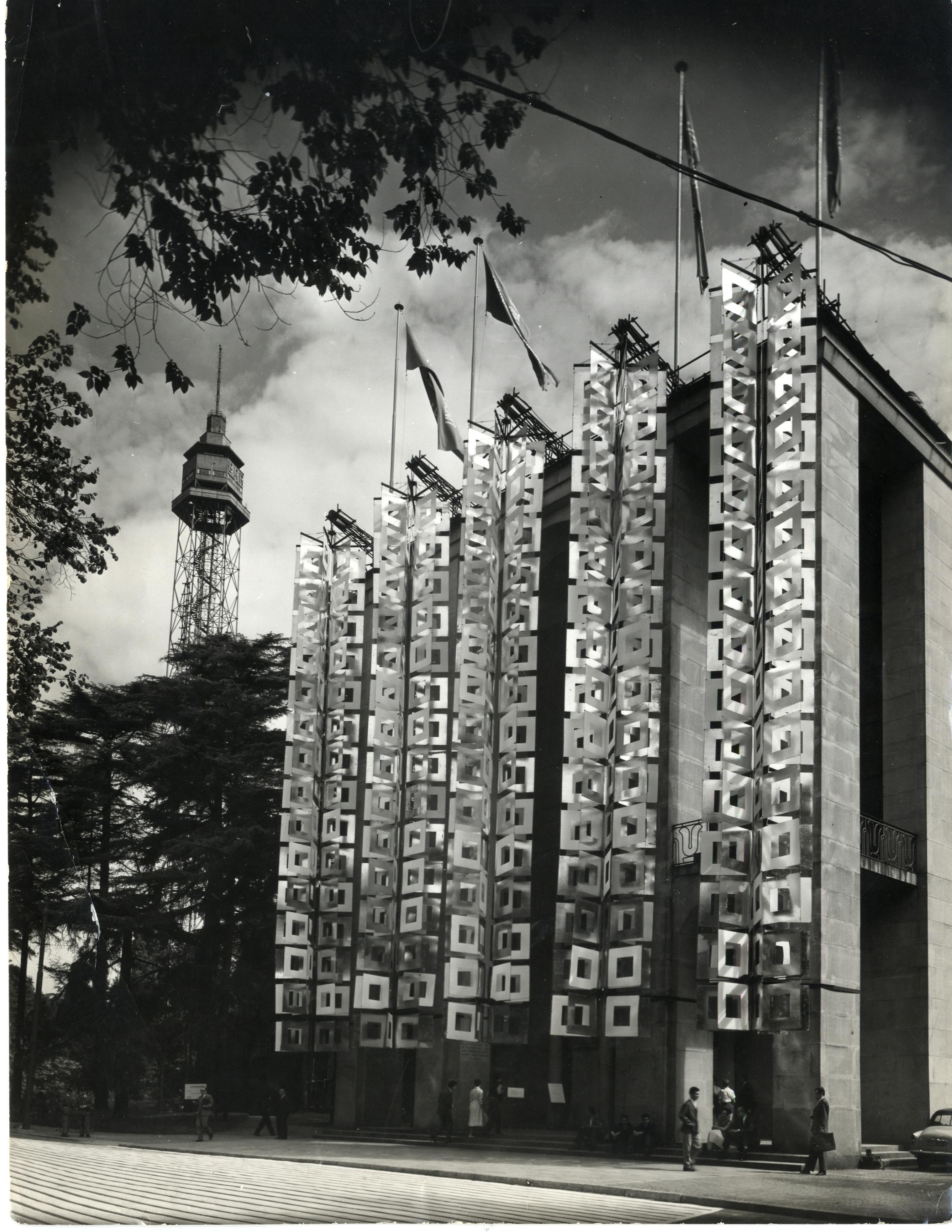
1957, 11th Triennale: Sheet-steel hangings at the entrance to the Palazzo dell’Arte, designed by Nelly Krauss and Giulio Minoletti
For the 13th Triennale in 1964, Aldo Rossi and Luca Meda gave the facade of the Palazzo dell’Arte a new function, having it support a bridge with a triangular cross-section, consisting of two staggered sections connected by a walkway. The first linked the Triennale to Viale Molière and the second went from Viale Molière to Viale Zola. The bridge consisted of a reticular structure of iron tubing covered in wire mesh and painted white.
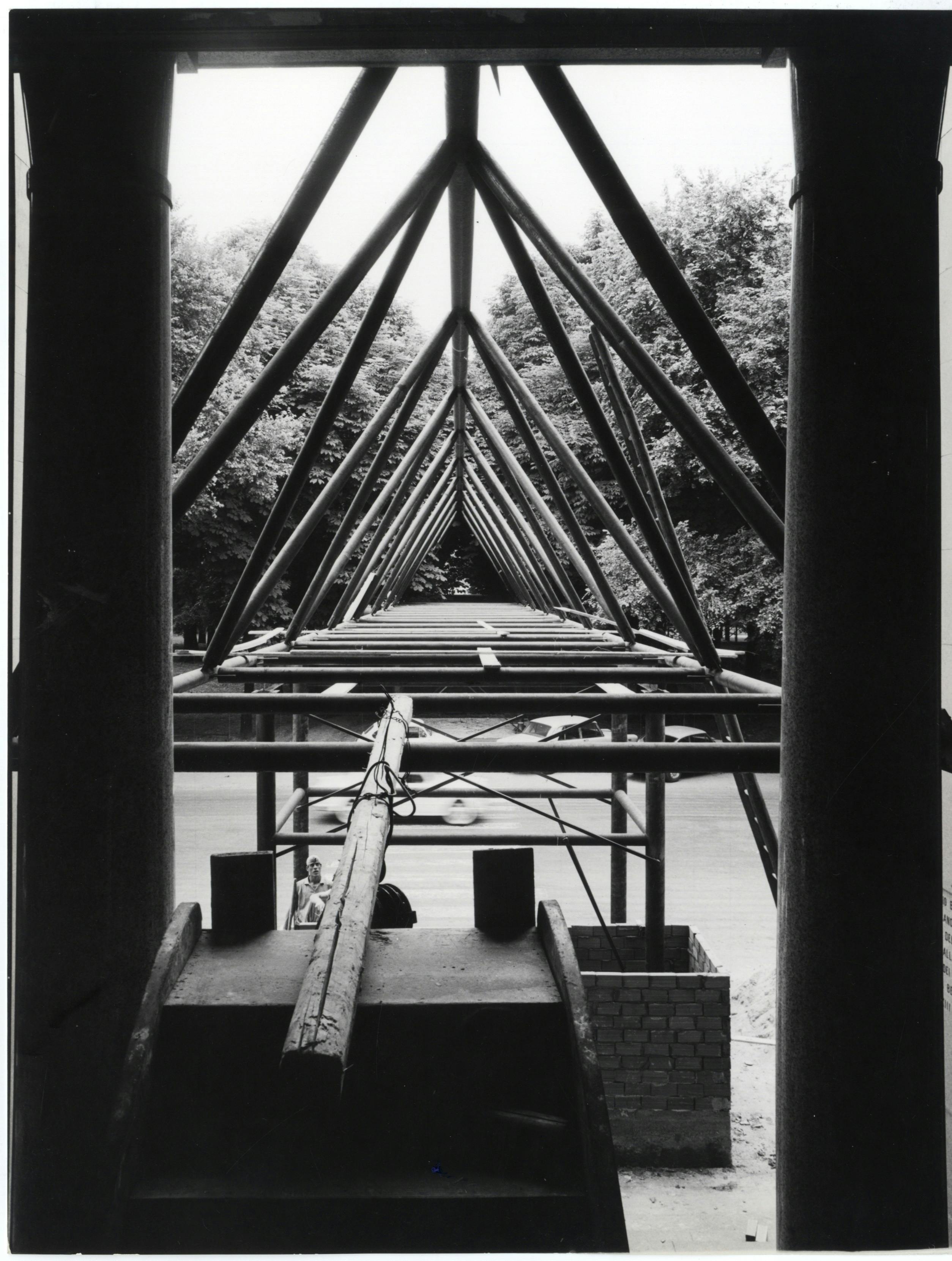
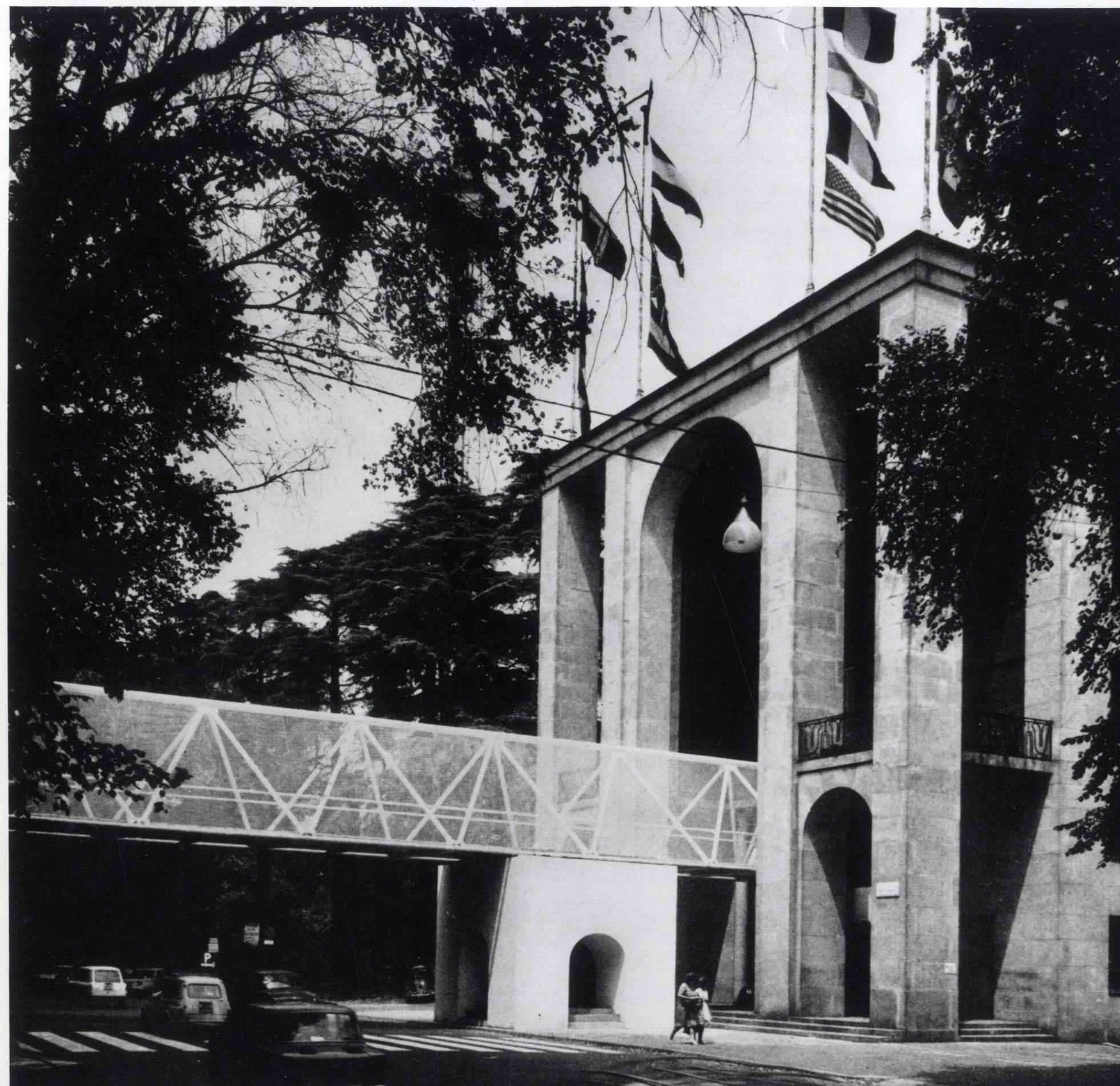

No special installation was made for the 14th Triennale but the year was 1968 and clashes broke out between students and police in universities in Milan in the week prior to the planned opening of the Exhibition. During the opening ceremony, a crowd of about a hundred people, including students and artists, gathered in the square in front of the Palazzo dell’Arte and then broke into the exhibition spaces proclaiming the occupation of the institution. This went on until 30 June, when they were thrown out. As we see in photographs of the time, the daubed facade of the Triennale became a support for signs and messages that showed what was going on inside.
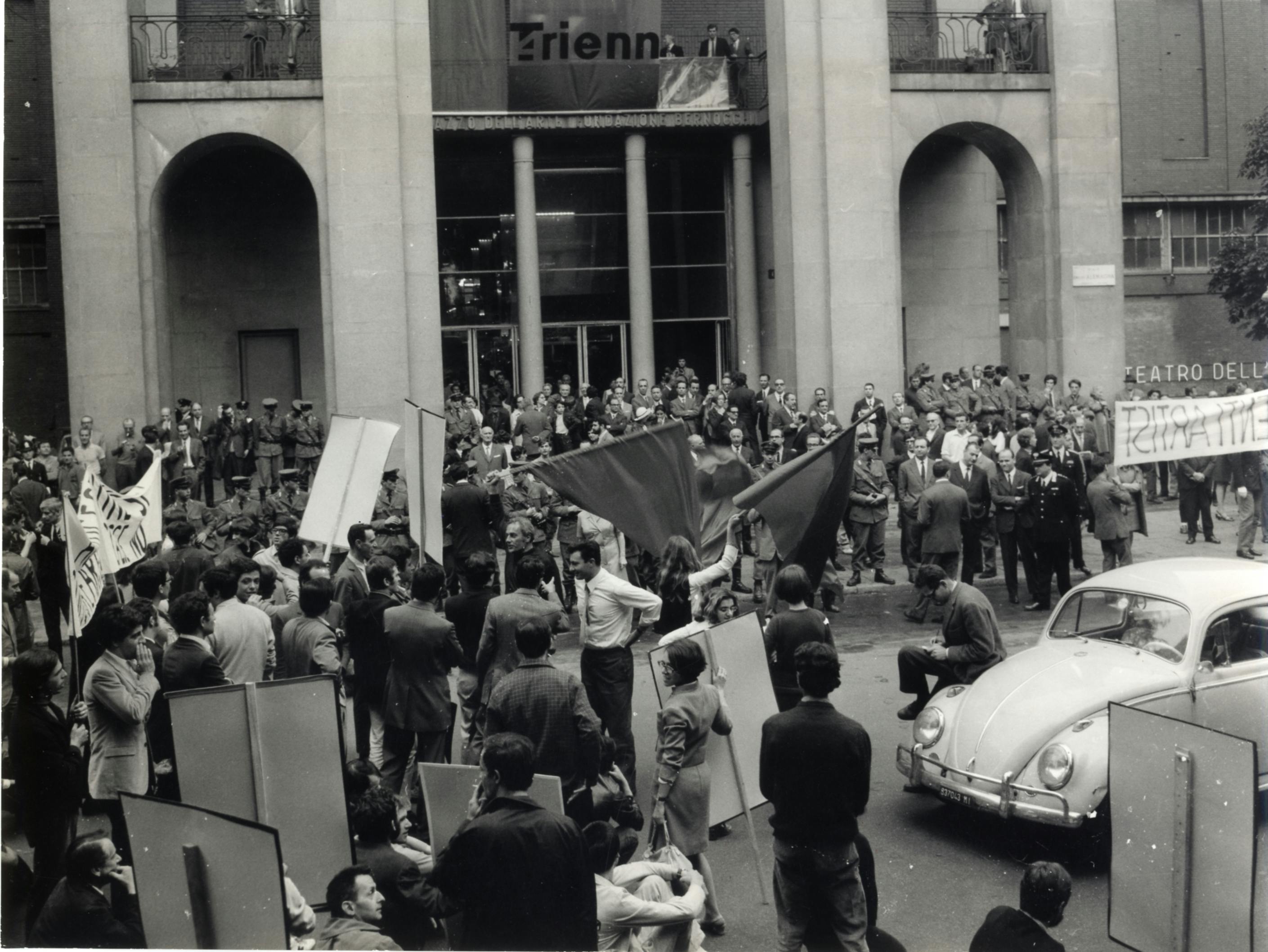
1968: The main facade of the Palazzo dell’Arte after the occupation of the 14th Triennale
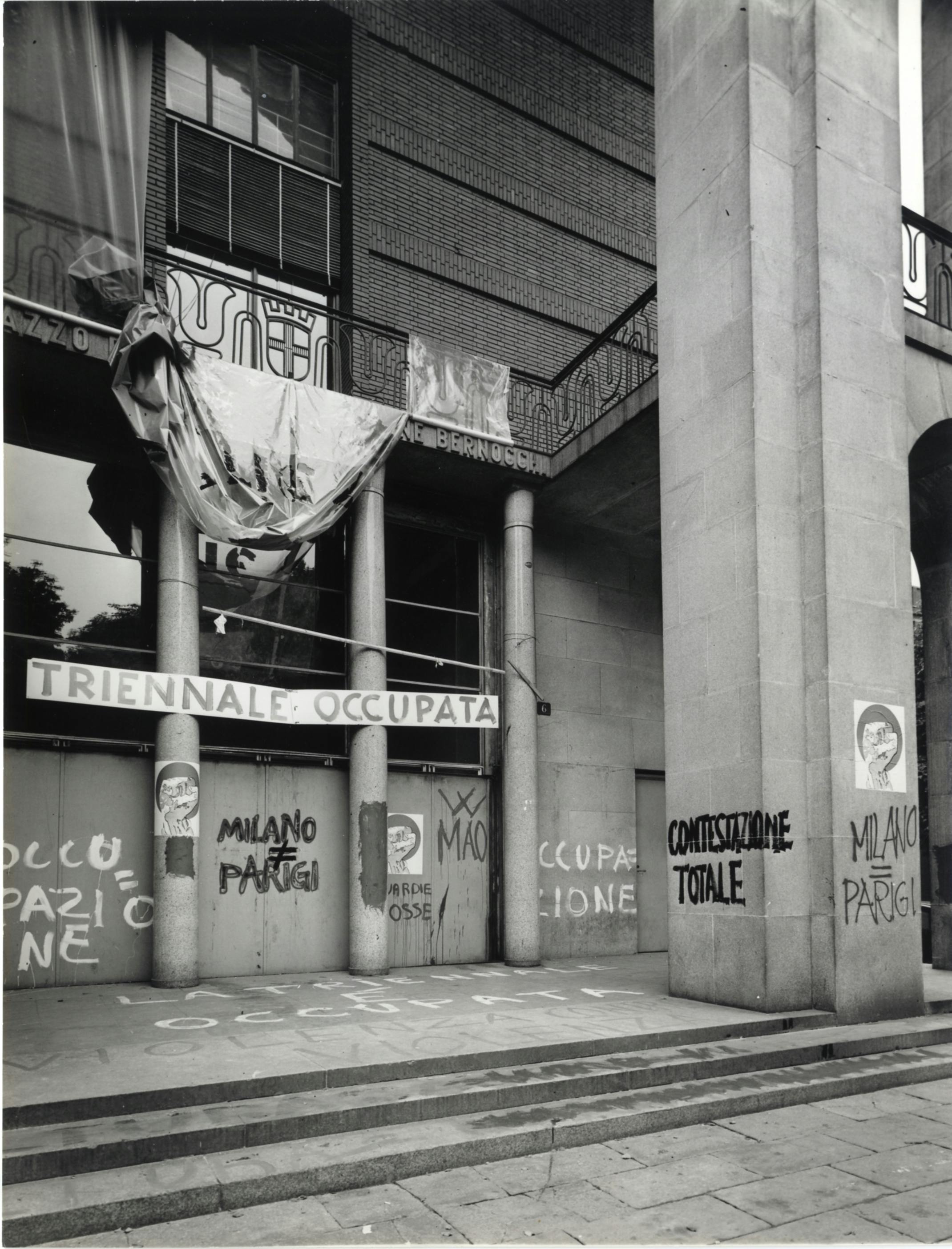
No special installation was made for the 14th Triennale but the year was 1968 and clashes broke out between students and police in universities in Milan in the week prior to the planned opening of the Exhibition. During the opening ceremony, a crowd of about a hundred people, including students and artists, gathered in the square in front of the Palazzo dell’Arte and then broke into the exhibition spaces proclaiming the occupation of the institution. This went on until 30 June, when they were thrown out. As we see in photographs of the time, the daubed facade of the Triennale became a support for signs and messages that showed what was going on inside.
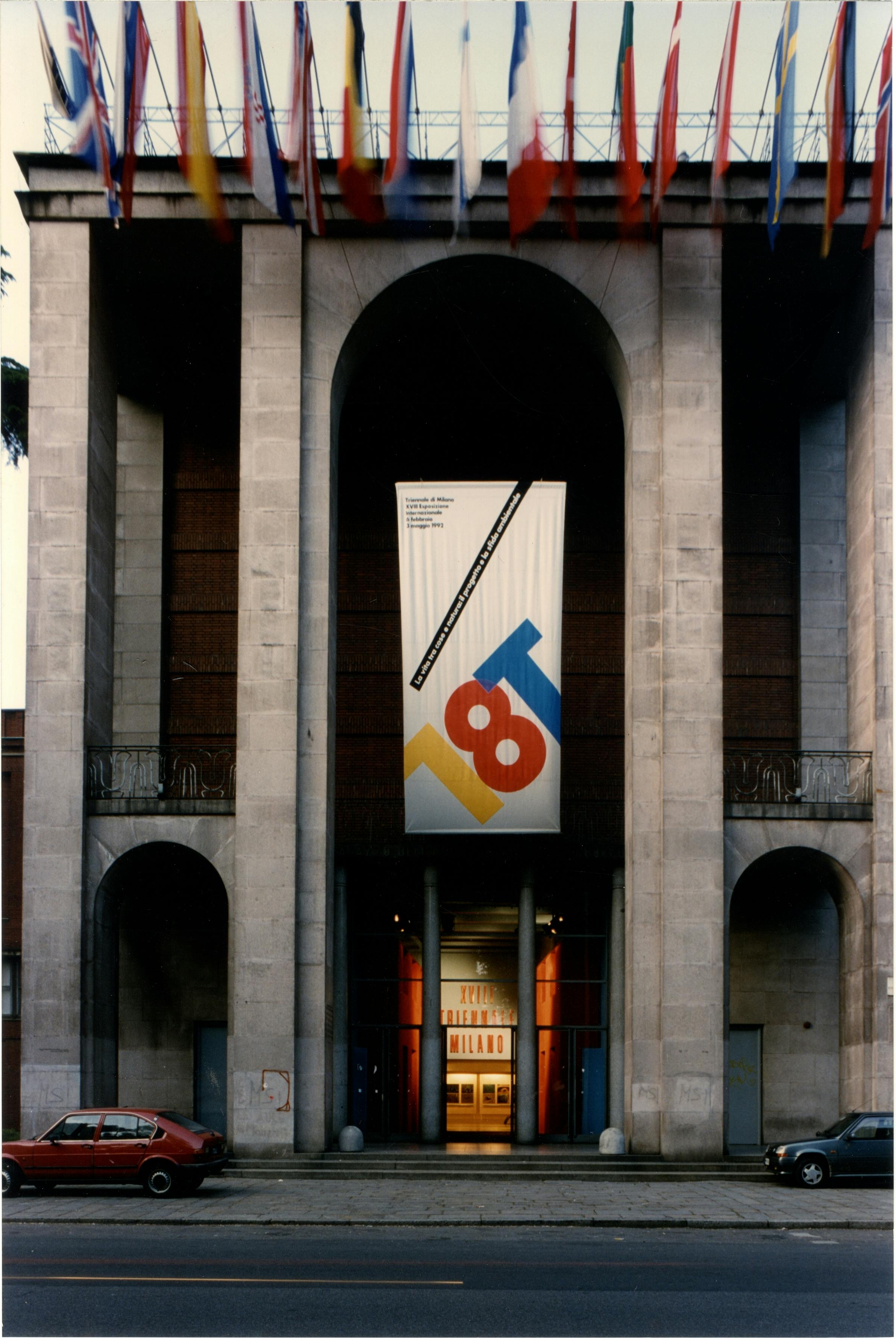
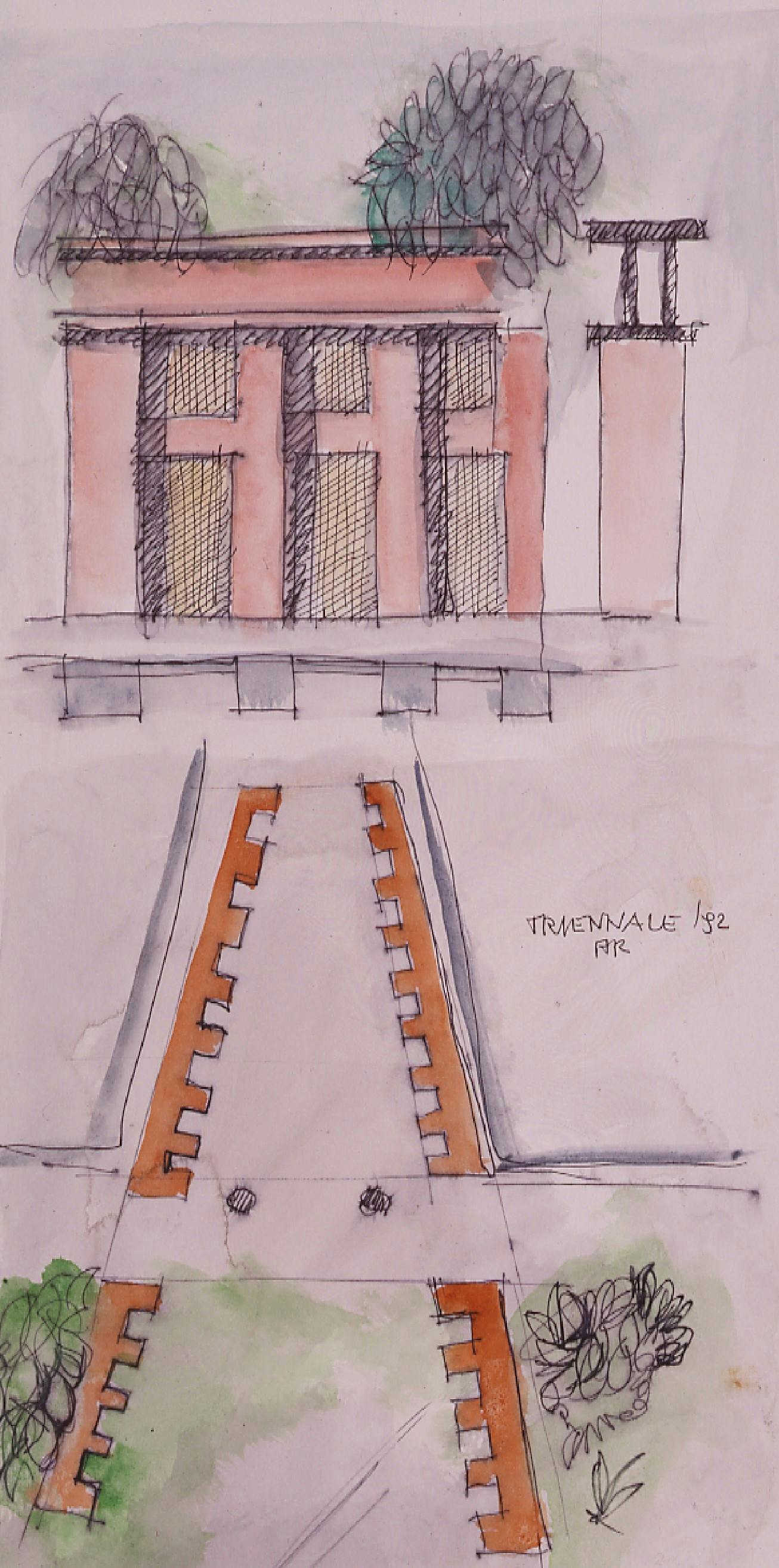
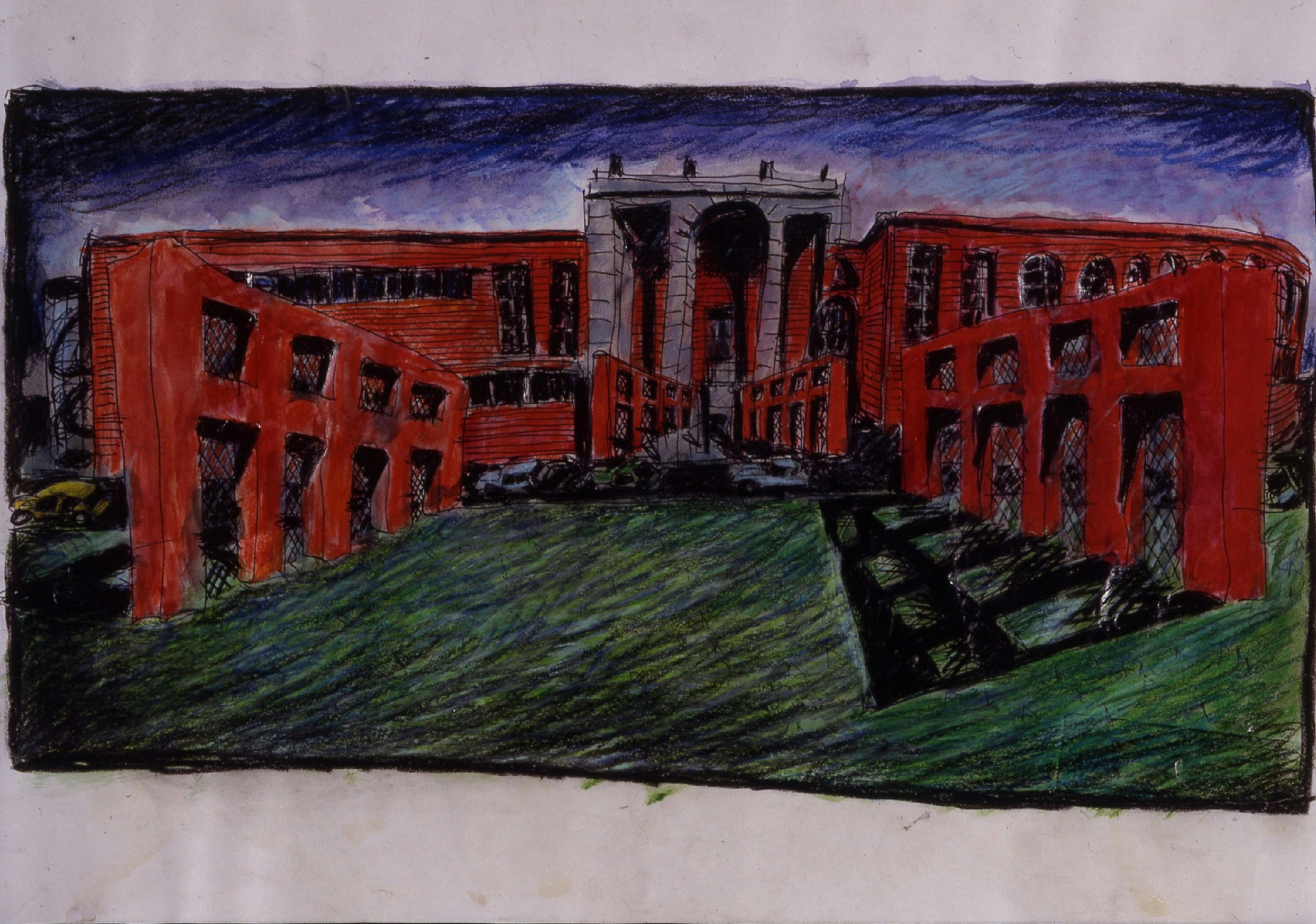
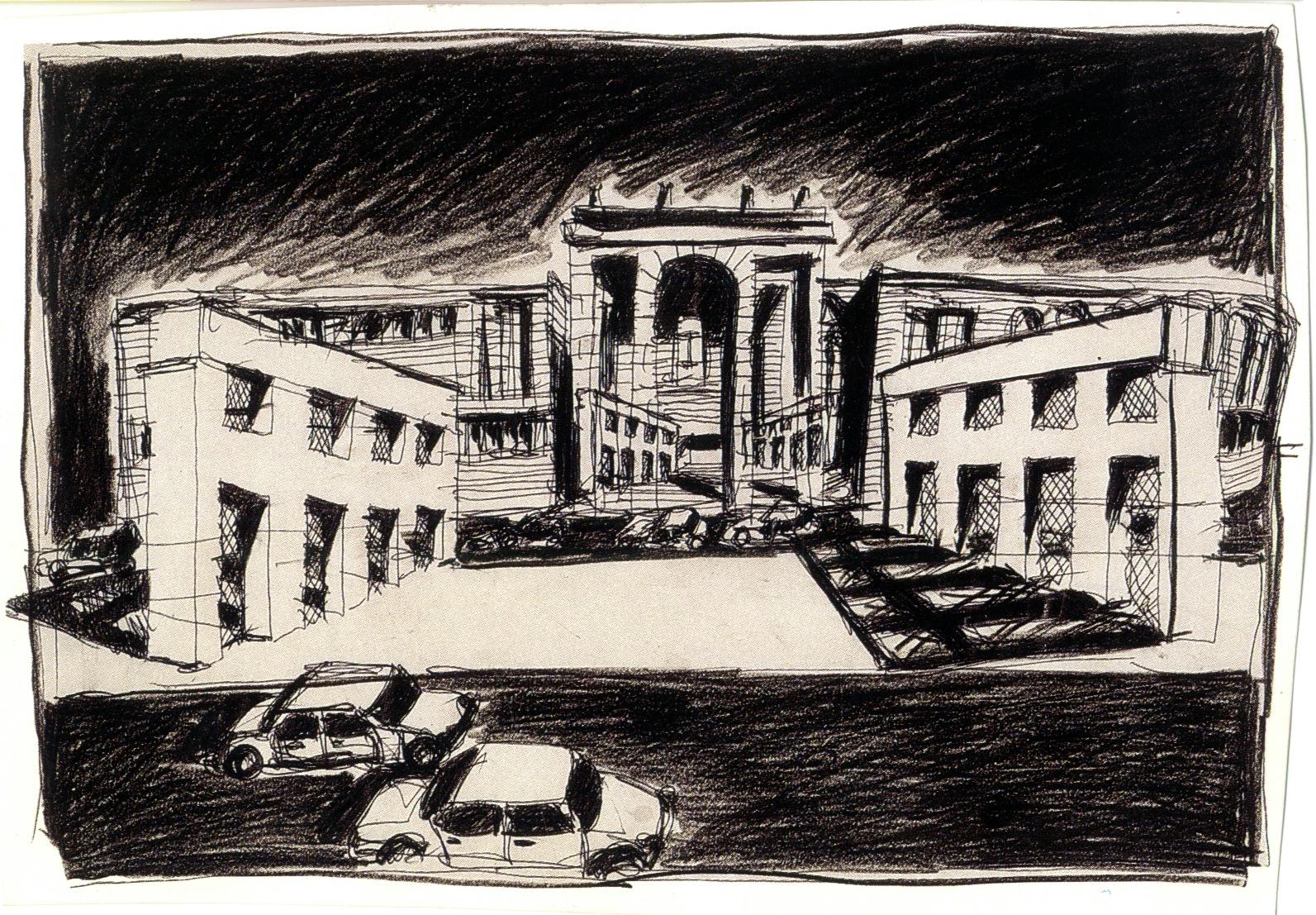
For the 18th International Exhibition, which was set up in 1992 by Aldo Rossi and Luca Meda, the facade was used solely as a support for a banner with a graphic image designed by Bob Noorda. The designers, however, had different ideas, as we see from the various drawings and sketches for their project. The red wall, built inside the Palazzo dell’Arte, just beyond the entrance, was to continue in the forecourt. It would have formed a sort of segmented structure projecting out into the green space in front of the Triennale. This project, which never got off the drawing board, reaffirmed the need – which the designers had already expressed with their bridge for the 13th Triennale – for a connection between the Palazzo dell’Arte and the park in front of it.
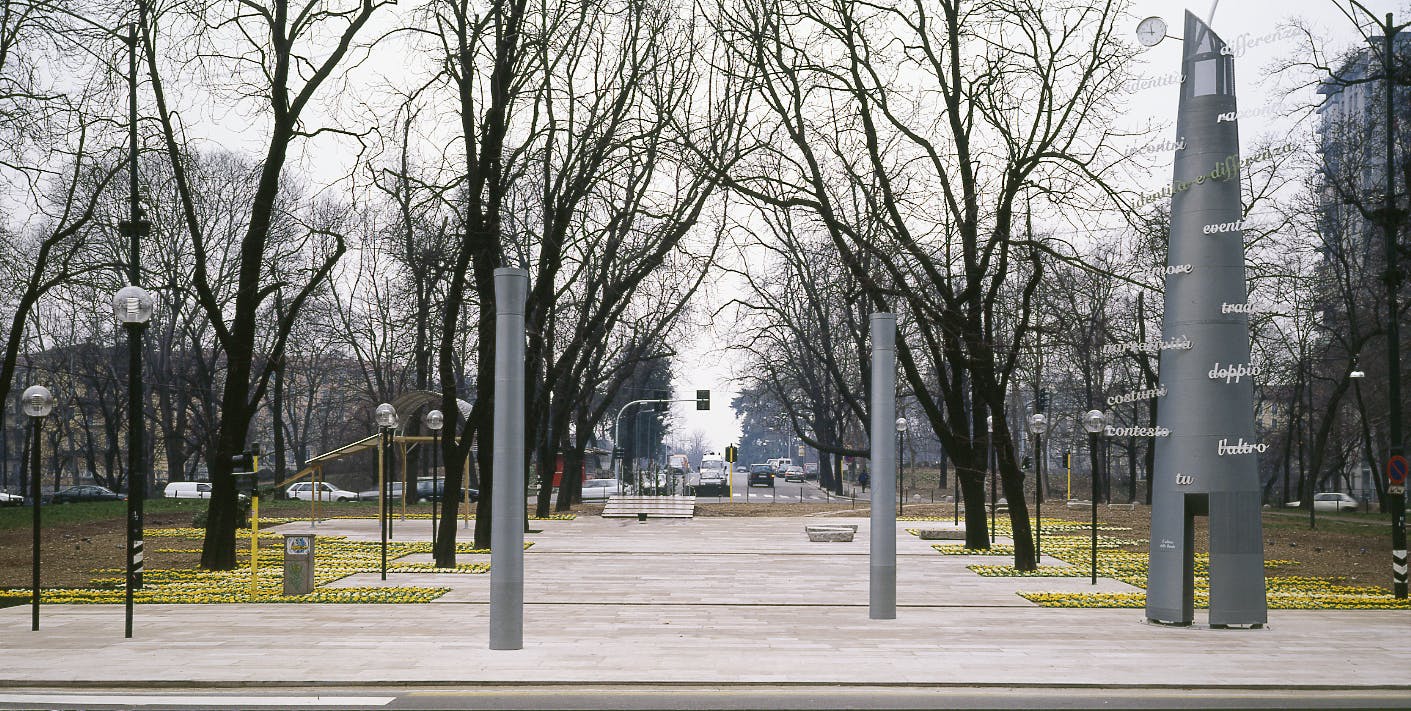
1996, XIX Triennale: La Triennale nella città, an introductory outdoor exhibition with Una piazza per la Triennale by Pietro Derossi.The Piazza in front of the Triennale, designed by Pietro Derossi
